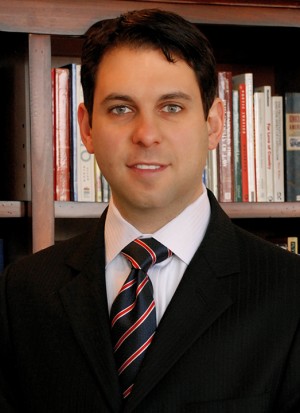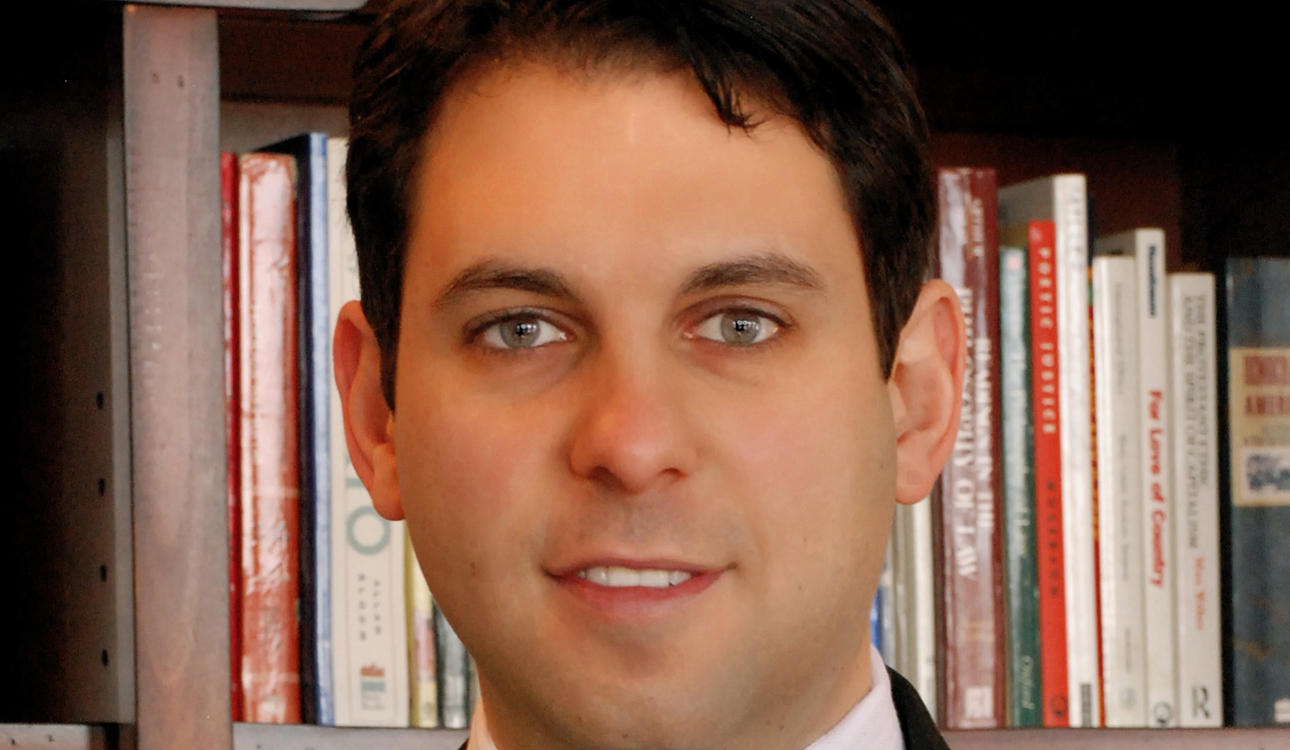
By Rae Jefferson
Staff Writer
Shanty houses. Dusty roads. Toddlers with swollen bellies. Many Americans often associate these images with poverty, and they are not always incorrect in doing so. But Victor Boutros, a ’94 Baylor alumnus and federal prosecutor, thinks they are missing a huge piece of what the impoverished world faces on a daily basis — systemized violence.
Boutros co-wrote “The Locust Effect” with Gary Haugen, founder and director of the human rights organization International Justice Mission. “The Locust Effect” looks at the correlation between poverty and violence, as well as a hopeful future for the issue.
“We traditionally think of poverty as sickness, hunger or homelessness,” he said. “We tend not to think of violence because it’s hidden from our view by the perpetrators.”
According to the organization’s website, International Justice Mission is a human rights organization that works through the legal systems of countries around the world to rescue “victims of slavery, sexual exploitation and other forms of violent oppression.”
Atlanta senior Sarah Mathis, vice president of the Baylor chapter of International Justice Mission, said violence and poverty often go hand-in-hand.
“The poor are either overlooked or exploited because they don’t have the means to stand up for themselves or don’t have a supportive government,” she said.
Identifying violence against the poor is often difficult because of the hidden nature of the crimes, Boutros said. Crimes like rape often leave victims with a negative social stigma and a lack of protection from police forces leaves them without justice.
“The victims, out of shame often try to hide it,” he said. “The human agents who commit the crime try to hide it. The shanty house doesn’t try to hide itself, hunger doesn’t try to hide itself – but it’s a lot harder to see the violence.”
“The Locust Effect” analyzes offenses such as rape, slavery, trafficking and land grabbing, or the large-scale acquisition of land by companies or governments, often without proper monetary compensation to the landowners for the transaction.
“It contrasts with the cataclysmic violences we see in the newspaper,” he said. “It’s not genocide or mass atrocity — which is super important and destructive, but this everyday violence ravages the poor like a plague of locusts.”
The book’s title originated from an episode in American history when 19th century Midwest farmers were inundated by hordes of locusts, which destroyed most of the crops they relied on for livelihood.
“The farmers would scratch together the little they had to buy some land, and then try to make enough to cover their costs,” he said. “Then the largest plague of locusts in human history descended like a black cloud and just razed away, in hours, everything that they had spent years to develop. Nothing would stop the locusts.”
Boutros said this same picture can be used to represent violence and humanitarian efforts in developing countries. Years of “smart development efforts” to fight poverty are being destroyed by everyday violence, he said.
“Many of these developments — population alleviation, public health efforts, human rights efforts — not only are they eviscerated by criminal violence, they also don’t do anything to stop the violence,” he said.
Mathis agreed that violence hinders the progress of developing countries.
“When there is violence, it hinders the development that could happen among the poor, especially in education, health care and things like that,” she said.
Boutros has handled many trafficking cases, in addition to police misconduct and hate crime cases, for the past seven years as a prosecutor with the Justice Department’s Human Trafficking Prosecution Unit.
Poor families often see trafficking as their only option because they can’t make money to support themselves any other way, Mathis said.
Mathis said the sharp division between the wealthy and poor in African countries increases this feeling of hopelessness for families living in poverty.
“It’s easy for the richest people, who are often in leadership, to run things because they aren’t necessarily using their wealth for the benefit of the poor,” she said.
Boutros said his motivation to write the book came from a deep-rooted desire to see broken judicial systems fixed. A report released by the U.N. said at least 4 billion people in the world live outside the protection of laws, he said.
“We’re in this phase where the problem is no longer that the poor don’t have laws protecting them, but what they don’t get is law enforcement,” he said. “The criminal justice system is utterly broken.”
Mathis said the police forces in developing countries are not always a source of safety for citizens, especially those in poorer areas.
“There’s corruption in every agency, but a lot of times there’s just so much corruption and violence that the people who are supposed to make them feel safe are no longer the people who actually make them feel safe,” she said.
Boutros said these broken systems perpetuate the violence seen in impoverished communities. The lack of protection from law enforcement and the judicial system allows violence to fester, he said.
For example, sending the world’s most skilled doctors to India is useless if the girl who really needs their care is locked away in a brothel, Boutros said.
“It creates a bottleneck that chokes out the efficacy of all these great humanitarian efforts,” Boutros said, referring to the effects of violence on poor communities. “Our hope is to pry open that bottleneck so that all these resources can pour in to the beneficiaries.”
Boutros said the situation is not hopeless. Historically, the judicial systems of countries like the U.S. and the U.K. looked very similar 150 years ago to some of the worst systems seen today.
“Working systems don’t just fall down from heaven,” he said. “We have to fight for the criminal justice system to work to protect the common citizen.”
Boutros said he hopes readers will take away a new perspective of poverty after reading the book.
“A lot of Baylor students have a growing interest in the world, “ he said. “So to begin to understand their world and enter their story is the beginning of making our presence in their lives all we hope it can be.”
Mathis said students can make an impact on poverty and violence through Baylor’s International Justice Mission student organization, as well as local outreaches like reading programs in Waco schools or mentoring programs through the university.
“As college students, we can’t be present fighting or preventing poverty, but we can be advocates and be educated about these issues,” she said.






